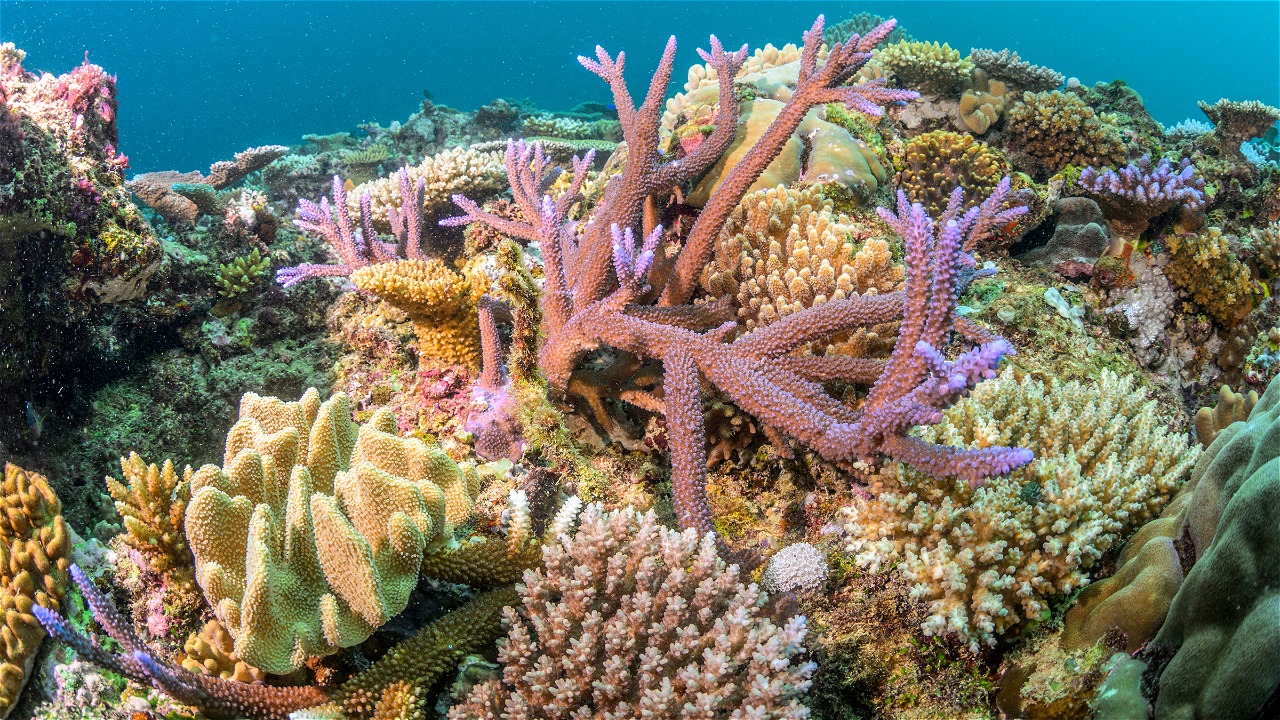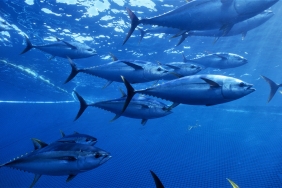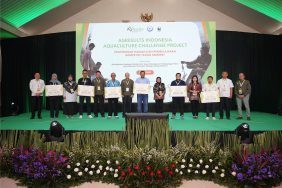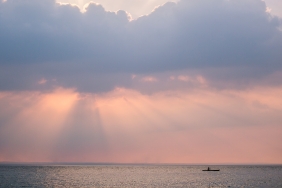INDONESIAN REEF FISH IMPROVEMENT EFFORTS REACHING SULAWESI AND NUSA TENGGARA
by Novita Eka Syaputri
The live reef fish industry of Indonesia, Asia Pacific, to America and Europe is growing rapidly to meet the many market demands. Interestingly, most markets, especially export markets and retailers, now only accept seafood products that come from sustainable and responsible (responsible) fisheries.
One way to identify whether a fishery product comes from an environmentally friendly source is through ecolabeling. Ecolabeling is an effort to achieve a win-win solution between sustainability, economic, and social issues through a market incentive mechanism. Ecolabeling is currently gaining a lot of attention from seafood consumers around the world who are concerned about the sustainability of seafood in the future. Capturing the issue, WWF-Indonesia through Seafood Savers is bridging the capture fisheries business to obtain the Marine Stewardship Council (MSC) ecolabel certification. To achieve MSC, WWF-Indonesia through the Seafood Savers program will conduct a pre-assessment and assistance to fishermen and fisheries industry players in developing the Fisheries Improvement Program (FIP) work plan. The Directorate of Foreign Marketing (PLN) - Ministry of Maritime Affairs and Fisheries (MMAF) also collaborated with WWF-Indonesia's Marine Program to help facilitate several Indonesian reef fisheries companies to obtain MSC ecolabel certification by conducting a pre-assessment as an initial step in assessing the readiness of the fisheries concerned. The assessment was conducted from December 2009 to June 2010, covering stock and utilization information, fishery impacts on ecosystems, and fishery management. The assessment was conducted on grouper and snapper reef fisheries caught by longline, bottom longline, and tonda in Indonesian waters based on Indonesian fishing practices. The results showed that Indonesia's reef fisheries need to be improved to meet MSC ecolabel certification standards, and the Reef Fisheries Improvement Action Plan became the main guide to improve reef fisheries practices in Indonesia. (Download document)
In an effort to obtain information related to the progress of reef fisheries improvement from the start of the implementation of the Reef Fish Improvement Action Plan in 2010 to 2013, the Directorate of PLN - KKP and WWF-Indonesia collaborated to organize a FIP consultation workshop as well as socializing the Director General of PLN's circular letter regarding the prohibition of receiving, processing, marketing fishery products originating from environmentally destructive fisheries activities, and obtaining the commitment of stakeholders involved in the management of these fisheries. The workshop, which was held at the end of 2013 in Makassar, was national in nature and covered four provinces in Indonesia with the largest fisheries production, namely South Sulawesi, Southeast Sulawesi, Central Sulawesi and East Nusa Tenggara. These four provinces are included in the Lesser Sunda seascape, which contributes 13% of national fisheries production (Fisheries Statistics 2012).
The FIP workshop, which involved participants from the District and Provincial Fisheries and Marine Offices, universities, reef fisheries entrepreneurs, and related NGOs, is expected to build awareness and commitment from all parties, from fishermen, fisheries entrepreneurs, government, to the market so that the fisheries business can run while preserving Indonesia's seas according to existing standards. Starting from behavioral changes from consumers to always choose responsible seafood products to the procurement of seafood products by producers who have sustainable fisheries business practices.
For more information about this FIP, please contact Abdullah Habibi, Capture Fisheries Coordinator, at ahabibi@wwf.or.id.





